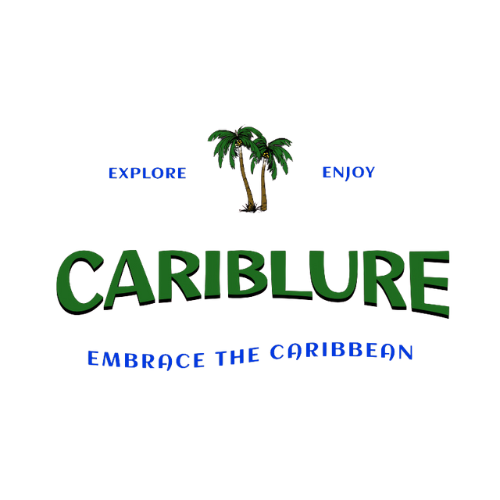Living in the Caribbean is like waking up to your own personal paradise every single day. With its breathtaking beaches, crystal-clear turquoise waters, and warm, tropical climate, it’s no wonder why so many people dream of calling this region home. From the vibrant cultures and laid-back lifestyle to the delicious cuisine and rich history, the Caribbean offers a unique and enchanting experience that is hard to find anywhere else. Whether you’re lounging on the beach, exploring the colorful coral reefs, or immersing yourself in the rhythmic beats of calypso music, life in the Caribbean is an endless adventure filled with beauty and tranquility.
Introduction to Caribbean lifestyle
Living in the Caribbean offers a unique and enjoyable lifestyle that is truly one-of-a-kind. With its stunning beaches, vibrant culture, and laid-back atmosphere, the Caribbean is a dream destination for many people. Whether you’re considering moving to the Caribbean permanently or just looking to escape the harsh winters, there are several aspects of the Caribbean lifestyle that make it an appealing place to call home.
Climate and weather
One of the biggest draws of living in the Caribbean is undoubtedly the climate and weather. The region is known for its year-round warm temperatures and abundant sunshine. The Caribbean enjoys a tropical climate, with average temperatures ranging from the mid-70s to the mid-80s Fahrenheit (mid-20s to low 30s Celsius) throughout the year. This warm and sunny weather allows residents to spend a great deal of time outdoors, whether it’s lounging on the beach, exploring nature trails, or participating in water sports.

Economic opportunities
While the Caribbean is often thought of as a vacation paradise, it also offers numerous economic opportunities for those who choose to make it their permanent home. The tourism industry is a major player in the Caribbean economy, providing a wealth of job opportunities in areas such as hospitality, entertainment, and tourism management. Additionally, sectors such as finance, agriculture, and manufacturing also contribute to the region’s economy, providing further avenues for employment and business growth.
Cost of living
The cost of living in the Caribbean can vary significantly depending on the island and the specific location within that island. Generally speaking, the cost of living in the Caribbean is higher than in many other parts of the world. However, it’s important to note that the cost of living can be significantly lower in some Caribbean countries compared to others. This means that with proper research and planning, it is possible to find affordable living options in the Caribbean.

Healthcare and education
Access to quality healthcare and education is an essential consideration when choosing a place to live, and the Caribbean offers both. Many Caribbean countries provide comprehensive healthcare systems that offer a range of services and medical facilities. While the quality and accessibility may vary between islands, there are several renowned medical institutions in the region. Similarly, education in the Caribbean is of a high standard, with many reputable schools and universities. Expatriate families will find a wide range of educational options, including international schools that offer an excellent standard of education.
Transportation and infrastructure
Transportation and infrastructure in the Caribbean vary from island to island. While some larger islands have well-developed transportation networks and infrastructure, smaller islands may have more limited options. Public transportation, such as buses and taxis, is available in many Caribbean countries, making it easy to get around. Additionally, several airlines and ferry services provide convenient options for travel between the islands. It’s worth noting, however, that certain remote or secluded areas may require more effort to reach.

Cultural diversity and language
One of the most enriching aspects of living in the Caribbean is the region’s rich cultural diversity. The Caribbean is a melting pot of different cultures and ethnicities, including African, European, Asian, and Indigenous influences. This diversity is reflected in the arts, music, dance, and cuisine of the region. Additionally, English is the predominant language spoken in most Caribbean countries, making it accessible for English-speaking individuals. However, other languages such as Spanish, French, and Dutch may be spoken in certain islands, due to historical influences.
Food and cuisine
Caribbean cuisine is a delightful fusion of flavors and culinary traditions from around the world. The region is renowned for its vibrant and spicy dishes, which often feature ingredients such as seafood, tropical fruits, spices, and peppers. From jerk chicken in Jamaica to roti in Trinidad and Tobago, Caribbean cuisine offers a wide variety of delicious options to satisfy every palate. Furthermore, the abundance of fresh and local ingredients makes it easy to access wholesome and flavorful food options.

Entertainment and recreational activities
Living in the Caribbean provides an array of entertainment and recreational activities for all ages. With its beautiful beaches, residents can enjoy swimming, snorkeling, diving, and other water-related activities year-round. The Caribbean is also rich in natural beauty, offering opportunities for hiking, exploring rainforests, and even volcano visits in some islands. For those who enjoy the arts, the region hosts numerous colorful festivals, music events, and carnivals that celebrate the vibrant Caribbean culture. Additionally, the Caribbean is home to several golf courses, tennis clubs, and other sports facilities, catering to a wide range of interests.
Challenges and drawbacks
While the Caribbean offers a wonderful quality of life, it also comes with its fair share of challenges and drawbacks. Hurricanes are a common occurrence during the Atlantic hurricane season (June to November), and residents must be prepared for the potential impacts of these severe weather events. Additionally, some Caribbean islands may have limited access to certain goods and services, particularly those that are not locally produced. This can result in higher prices and longer wait times for imported items. It’s also important to note that job opportunities and economic stability can vary between islands, so careful consideration is needed when choosing your Caribbean destination.
In conclusion, living in the Caribbean can be a truly amazing experience, with its idyllic climate, unique cultural heritage, and numerous recreational opportunities. While there are challenges and considerations to keep in mind, the Caribbean lifestyle offers a paradise that is sure to capture your heart. Whether you’re seeking a slower pace of life, a sun-soaked retirement, or new economic opportunities, the Caribbean is a place where you can find it all. So, pack your bags, embrace the island vibes, and get ready to create lifelong memories in this tropical paradise.


